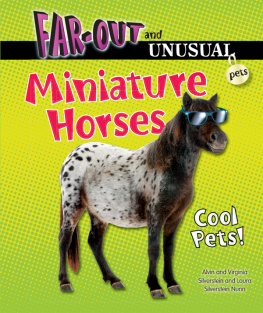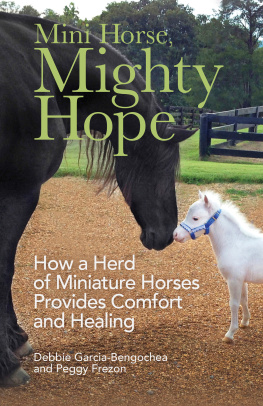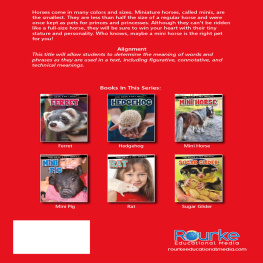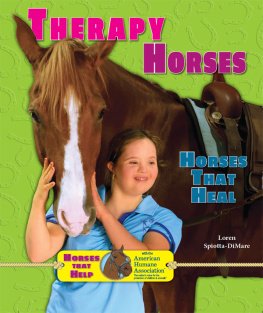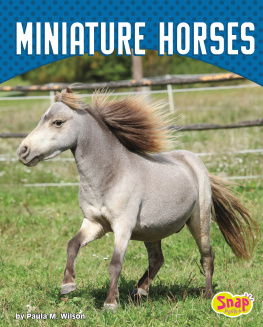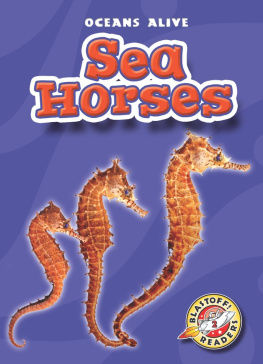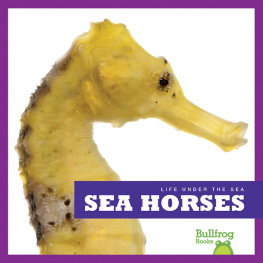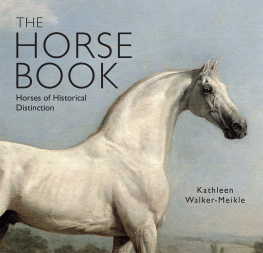Miniature Horses Cool Pets!
Lots of people have dogs and cats for pets, but did you know that some people keep pets like iguanas and miniature horses? If you've ever considered getting an unusual pet, the Far-Out and Unusual Pets series is for you! Learn the history, the science, and the care of fun and exotic pets.
"A delightful peek into the world of miniature horses. Recommended reading for any child who might someday be blessed with the opportunity to own their very own beloved, pocket-sized equine."
Melissa Powell
Editor, Miniature Horse
World Magazine, Official Publication
of the American Miniature
Horse Association
"Readers will enjoy all the great details about exotic pets in these fascinating, fact-filled books."
Allan A. De Fina, PhD, Series Literacy Consultant
Dean, College of Education
Professor of Literacy Education
New Jersey City University
Past President of the New Jersey
Reading Association
About the Authors
Dr. Alvin Silverstein is a retired professor of biology at the College of Staten Island, City University of New York. Virginia Silverstein translates scientific Russian and is a professional author. Together they have written more than 200 books for young people. Laura Silverstein Nunn has coauthored more than 100 books with her parents.


Image Credit: Shutterstock.com
A miniature horse is a great choice for a pet.
Have you ever begged your parents for a horse? Who could resist such a beautiful animal? But owning a horse is a lot of work. Horses are really big animals. You cant cuddle up to one at night. It needs to be outside with lots of room to run around. Keeping a horse also costs a lot of money.
If only these big beauties came in smaller sizes. Wouldnt it be cool to have one about the size of a dog? Luckily, pint-size horses really do exist. They are not ponies. They are a different kind of horse, called miniature horses. Many people call them mini horses, or minis for short.
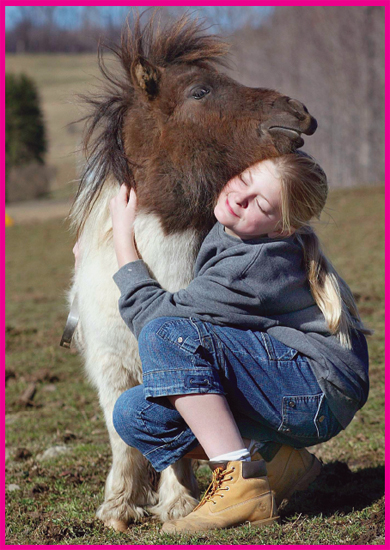
Image Credit: Julie Lewis
Miniature horses love company.
Mini horses are popular pets. They look like regular horses, but they are much smaller. They are very sweet and gentle. They will even follow you around like a puppy dog!
Owning a mini horse is not like owning a dog, though. Sure, its small enough to bring inside your house. But a mini horse is still a horse. It needs to be outside. It needs a lot less room and food compared to a regular-size horse, though. A mini horse would be happy in a persons backyard, with a shed for shelter. It will also eat much less than larger horses eat.
Still, keeping mini horses is a big responsibility. They take a lot more time and money to care for than a cat or dog. But many mini horse owners would say that its worth it.
What would it be like to own a mini horse? Read on and find out what makes miniature horses such far-out and unusual pets.
Far Out!
An adult mini horse weighs an average of 150 pounds (60 kg). Thats less than what a Saint Bernard weighs. The Saint Bernard is one of the largest dog breeds. Males can weigh up to 200 pounds (91 kg) or more!
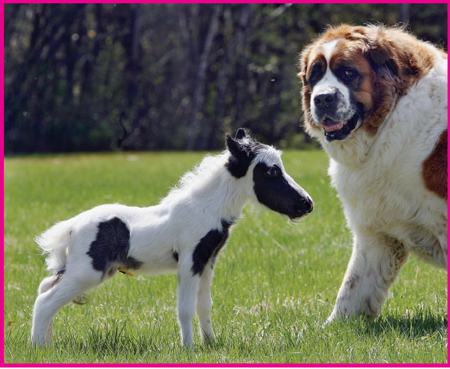
Image Credit: Jim Cole
Why are miniature horses so small? Did they not grow right? Are they sick? Mini horses are not small because there is something wrong with them. They are supposed to be that way. They are just as healthy as regular-size horses. Mini horses are simply a different breed of horse.
You might think that keeping mini horses is a new pet craze. But miniature horses have actually been around for a very long time. In fact, people have been keeping these little horses for hundreds of years!

Image Credit: Pete Markham
Miniature horses are like regular horsesjust smaller!
The first miniature horse pets go back as early as the 1600s. These little horses were specially bred as pets for the kings and queens of Europe. The horses small size made them easy to handle. They made great companions for the young princes and princesses. Mini horses were also used in England and northern Europe as work animals. They pulled carts in coal mines. They could also go to other places that were too small for regular-size horses.
By the late 1800s, some mini horses were brought to the United States. These horses were used to pull carts in the coal mines of West Virginia, Kentucky, and Ohio as recently as the 1950s. By the late 1970s, mini horses were hugely popular. Many appeared in horse shows. Others became lovable pets.
Years of breeding have created the wide variety of mini horses we have today.

Worlds Smallest Horse
In October 2010 The Oprah Winfrey Show featured Einstein, believed to be the worlds smallest horse. Born in April 2010, Einstein stood 14 inches (36 cm) tall and weighed only 6 pounds (2.7 kg)!
Shortly after Einsteins appearance on the show, calls poured in from people who wanted to buy the mini horse. Two of these calls were from celebrities: the well-known Paris Hilton and basketball superstar Shaquille ONeal. But the owners told them Einstein was not for sale. Hes priceless, owner Charlie Cantrell said.

Image Credit: Jim Cole
A miniature horse stands no more than 34 inches (86 cm) tall at the base of the neck, or withers. (A horses height is measured at the withers, where the mane ends.) A full grown mini may weigh from 150 to 250 pounds (60 to 113 kg). Thats a huge difference from its 6- to 7-foot (183- to 213-cm) cousin that weighs more than 1,000 pounds (454 kg)!
Mini horses are not ponies, dwarfs, or runts. They are simply smaller versions of their taller relatives. They still look like Quarter horses, Arabians, or Thoroughbreds. Like all horses, mini horses come in a variety of colors. They may be black, brown, reddish brown, orange, yellowish, palomino (golden brown with a white mane and tail), gray, silver, or white. They may have a mixture of colors, solid colors, patches, or spots.
The Falabella is a rare but popular miniature horse breed. This breed developed originally when Spanish settlers brought horses to Argentina. Some of them were set free to roam in the wild. The harsh conditions of the land made the horses very sturdy. In the late 1800s, a rancher named Juan Falabella bred local horses to produce the breed we know today. Falabellas have the graceful look of an Arabian horse with a sturdy build and thicker coat.


